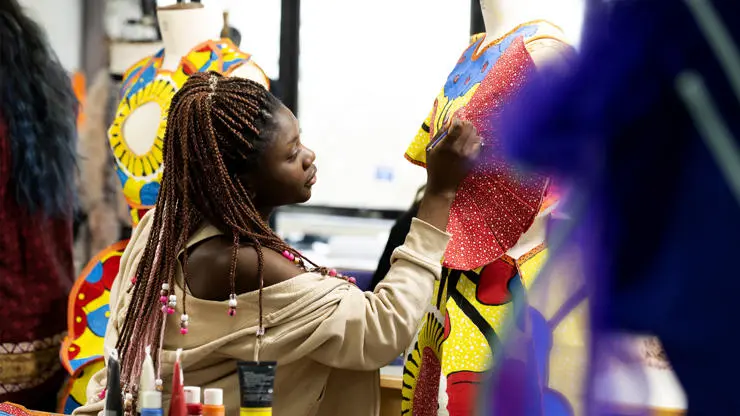What is a creative director?
A creative director shapes the overall vision and direction for a brand, company or campaign, and play a crucial role in bringing a brand's story to life. They use their artistic expertise to plan high-quality content that resonates with their target audience.
How much does a creative director earn?
The average salary for a creative director is £65,547. However, earnings can vary significantly based on factors such as experience, industry, and location. For example, creative directors with extensive experience or those working in high-demand industries like advertising or entertainment may be paid higher salaries. Similarly, creative directors based in large cities often earn more due to the higher cost of living and more demand for top talent in these areas.
What skills do you need to become a creative director?
Below are the key skills required to thrive as a creative director. These skills come from a combination of education, experience, and ongoing skill development:
Starting an undergraduate degree in a creative field is a great way to begin working on these skills.
A good way to start on the path to becoming a creative director is by getting a degree in a creative field. This could be in Fashion Design, Graphic Design, Marketing, Fashion Promotion, or something similar. These degrees provide the foundation for knowledge and skills relevant to the industry.
While a master’s degree isn't essential, it can be beneficial for aspiring creative directors as it allows you to focus on your chosen field and deepen your expertise. For example, doing a postgraduate course such as a MA in Fine Art or MA in Graphic Design can make you more qualified and better prepare you for a career as a creative director.

Path to becoming a creative director
The path to becoming a creative director can vary depending on the company and industry you're in. Many people start with entry-level roles such as graphic designers, photographers, or marketing assistants. From there, you can progress through promotions which help you to gain valuable experience and skills over time.
As you progress in your career, it’s key that you build a strong portfolio that showcases your work. Whether in digital or physical form, your portfolio will demonstrate your work on campaigns, projects, publications and showcase your abilities and achievements.
At UCLan, you have access to a lifetime of careers advice. Even once you've graduated, you can continue to access our support and services if you ever need it. That's why so many creative industry professionals choose to study with us.

